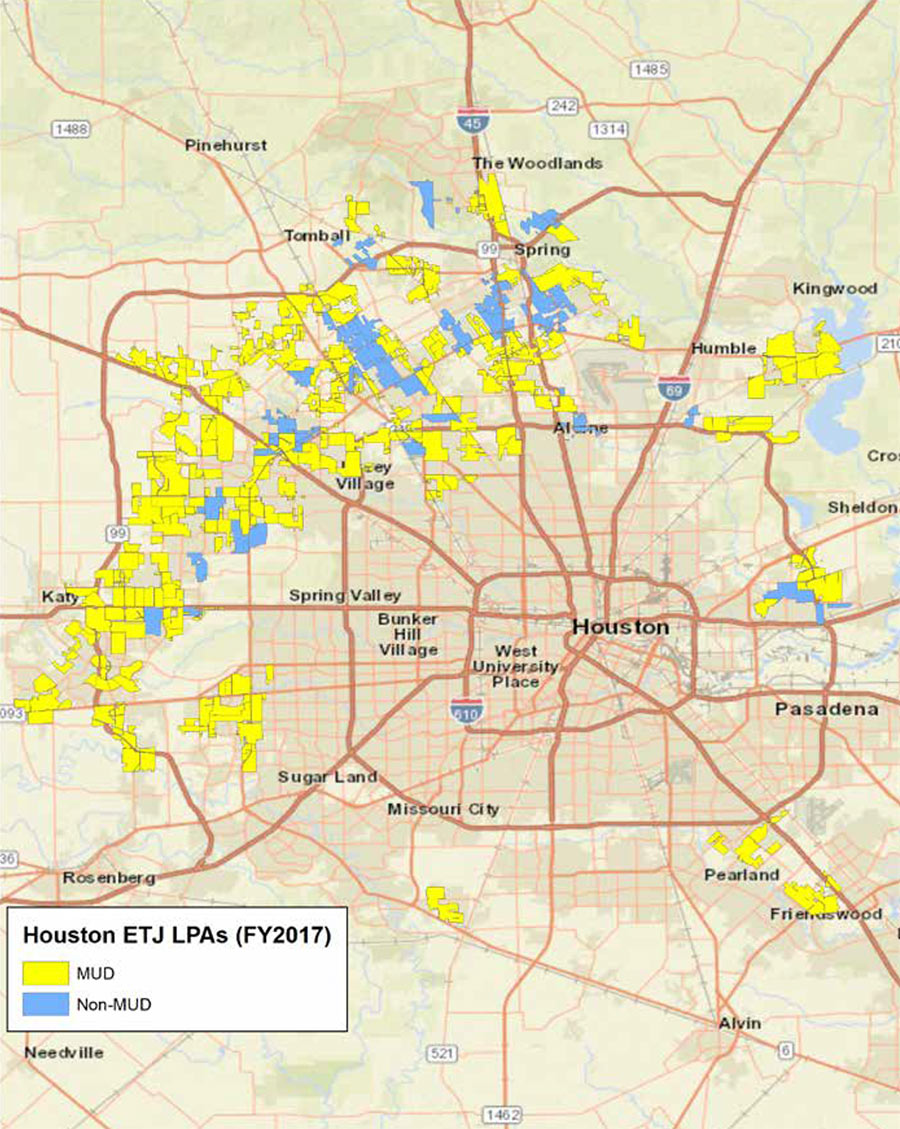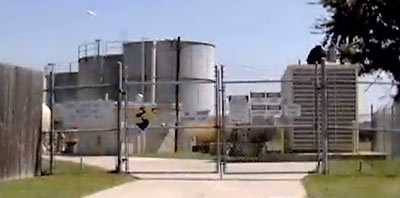
Since 1995, a new kind of land designation has been cropping up all along Houston’s outskirts: the LPA, or limited-purpose annexation. It’s a way for the city to collect sales tax in small, usually commercial, portions of unincorporated areas without formally annexing them or providing them with city services. Often LPAs are established inside an existing MUD (as shown above in yellow), although they doesn’t have to be (as shown by the blue). “The pursuit of these agreements is often framed by the city as a commuter tax,” according to a recent report from Rice’s Kinder Institute, “aimed at collecting revenue from residents who live outside of Houston but who use the services provided by the city.”
But there’s another reason why more than 200 LPAs now encircle the city, mainly between Hwy. 6 and the Grand Pkwy. Last year, the Texas legislature passed a bill that limits cities’ annexation power by allowing the communities they want to annex to hold their own referenda before their extra-territorial turf can be snatched up. One exception: A referendum isn’t necessary if the city and the area to be annexed have a preexisting agreement that says so. Many of Houston’s LPAs include this carve-out, meaning that when they expire — the typical term is 30 years — the areas they regulate will be up for grabs by the city . . . no local vote needed.


